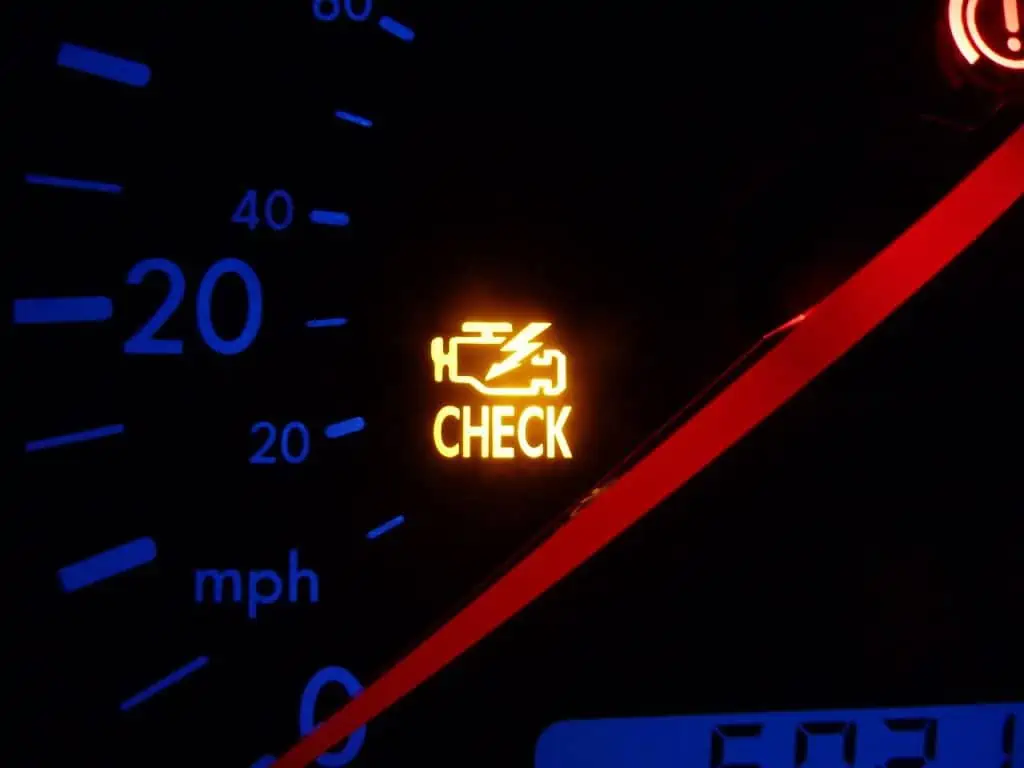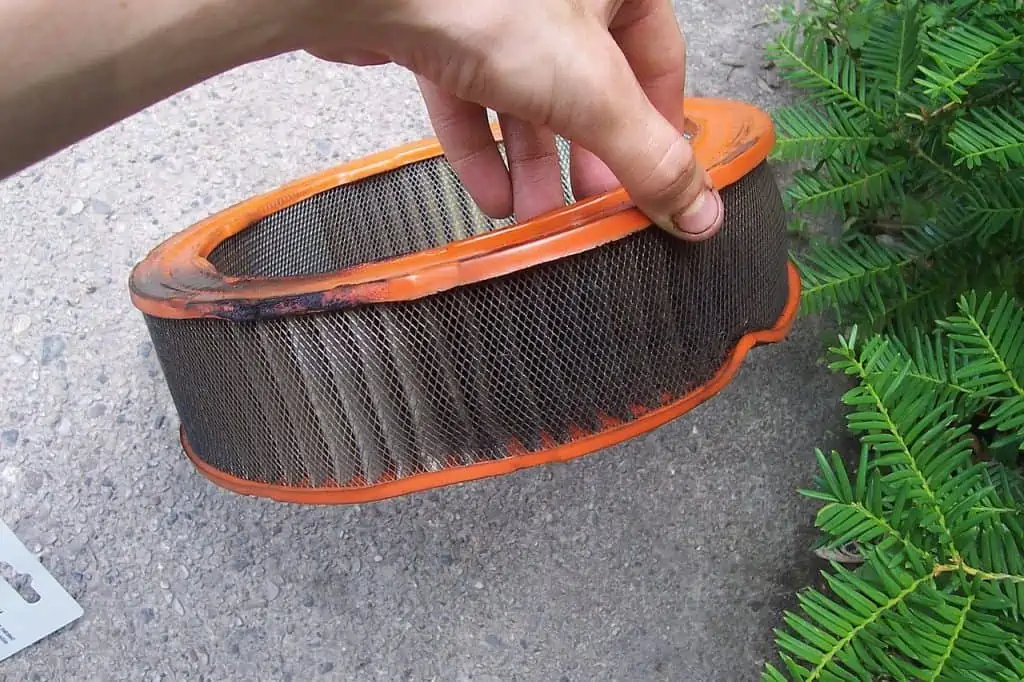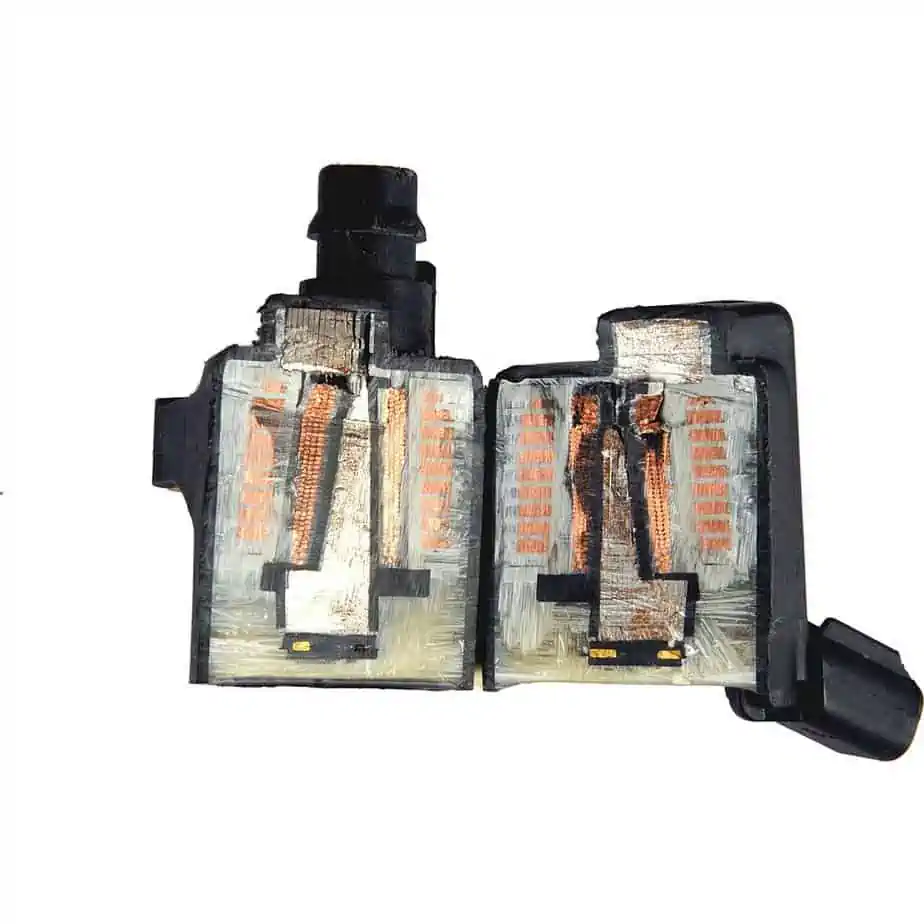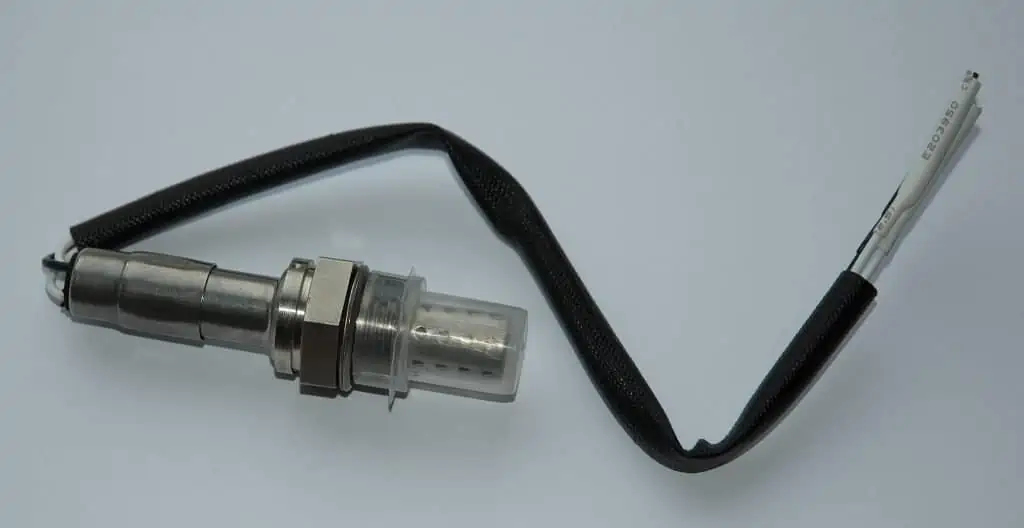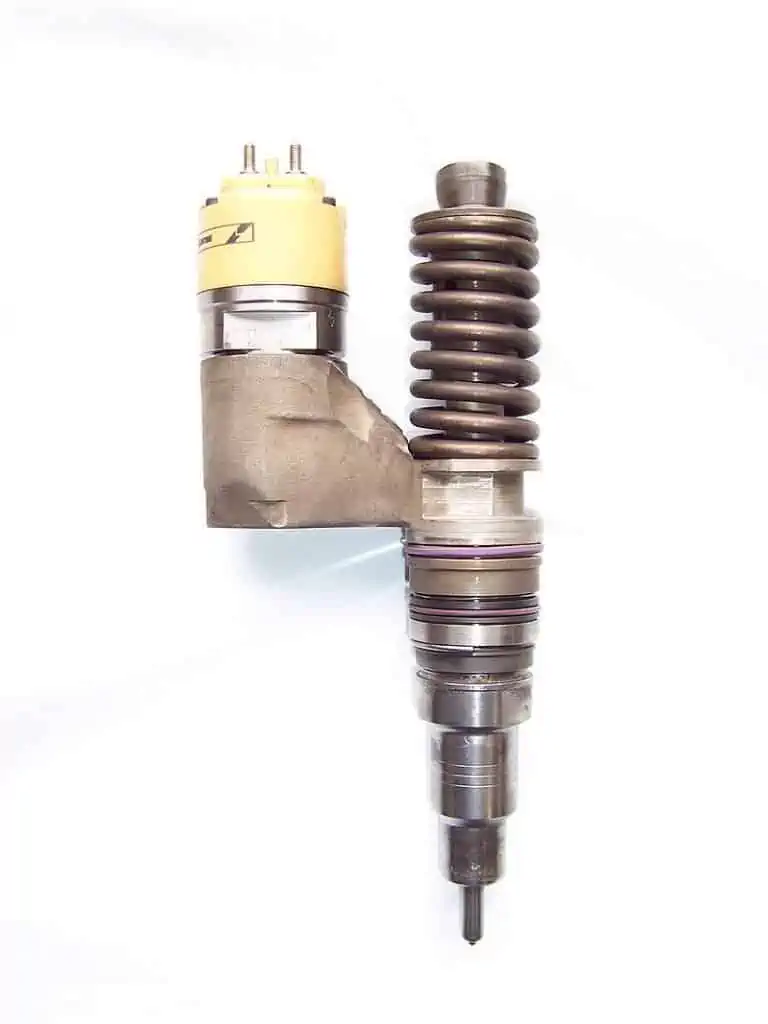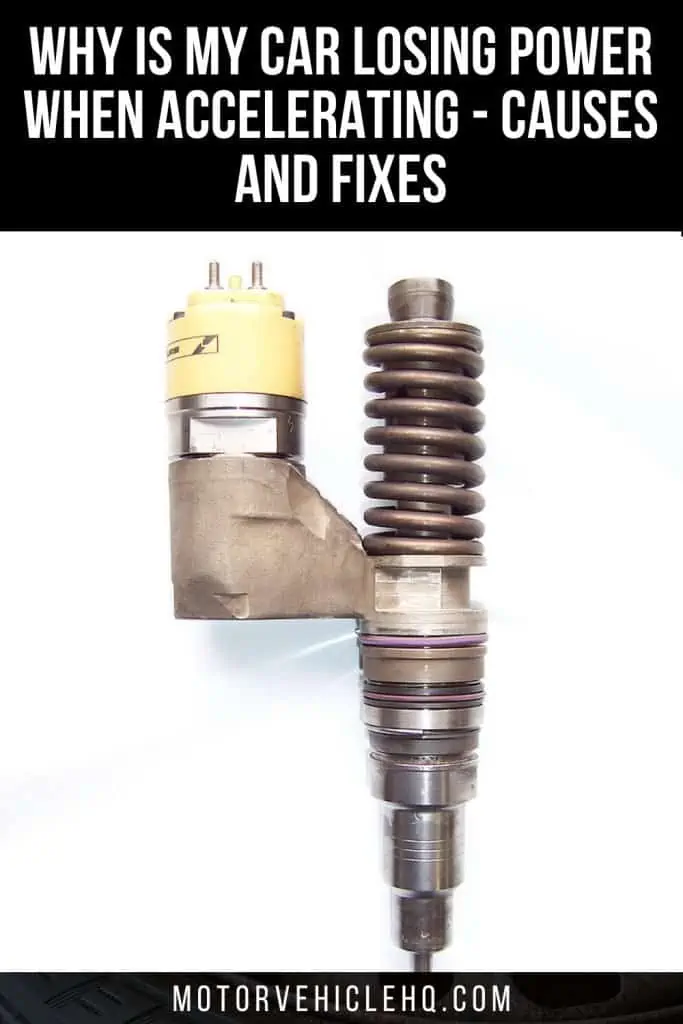One of the worst driving experiences, as any car owner knows, is pressing the gas and the engine responding slowly. Your once-efficient car’s lack of zeal to get you where you need to go on time is pretty annoying and disheartening.
A technical or electrical issue with the car will frequently cause it to lose power when accelerating. Sometimes simply adjusting the carburetor, switching out the spark plugs, and possibly even changing the distributor rotor and cap will take care of this problem.
But automobiles keep getting more advanced and intricate. All of this was done by automakers to increase the efficiency of their vehicles and enhance the driving experience. The drawback of this sophistication is that there are now numerous possible reasons why your car loses power when you accelerate.
It is crucial to note that the engine is to blame for most or all acceleration power loss difficulties. As a result, an engine issue is likely to result in power loss when you press the gas pedal. Of course, there are other components as well, such as the fuel and exhaust systems, that may contribute to this problem.
You won’t have to scratch your head any longer wondering what’s causing your car to lose power when accelerating because this article will walk you through all of the various possible explanations for a car losing power or hesitating when you step on the throttle.
We discuss the causes and effects of any engine power loss you may be experiencing as well as potential solutions. Let’s get started.
Possible Causes of a Car Losing Power When Accelerating
Below are some of the reasons why you experience the car losing power when accelerating:
Engine Related Issues
1. Worn Spark Plugs
The functionality of the car engine depends heavily on the spark plug. When an electric spark is provided to the combustion system through the spark wires, the spark plug ignites a fuel/air mixture.
The spark plug has a significant impact on how well an automobile engine operates. The spark plug starts a fuel/air mixture when an electric spark is delivered to the combustion system through the spark wires.
The engine of your car is afterward started by this ignition of the air/fuel mixture, which also provides the wheels with propulsion.
Therefore, if any spark plug is damaged or fails, the engine would automatically loses power. When you try to accelerate the car, you may experience symptoms like hesitation or power loss as a result.
Fortunately, you don’t need to be a skilled technician to spot a bad spark plug. An engine noise that sounds like it is knocking or rattling is one of the telltale symptoms that you have a broken spark plug.
Deteriorating fuel efficiency or decreased performance are other signs of a damaged spark plug. Your car’s fuel economy is directly impacted by the spark plug’s condition.
If you experience a lack of power or if your car runs out of fuel more quickly than usual, check or inspect the spark immediately. Additionally, every 30000 miles, you should have the spark plugs changed.
2. Clogged Air Filter
Surprisingly, one of the most frequent reasons why cars lose power when they accelerate is due to blocked or unclean air filters. This is so because incomplete combustion results from insufficient oxygen, which is a crucial component of the combustion process.
When you press the gas pedal, the engine then sputters as a result of this. Before accessing the internal combustion chamber, air from the atmosphere must first pass through the air filter. The air filter removes particles, insects, and other pollutants from the air that shouldn’t enter the combustion chamber.
Air filters frequently become clogged with dirt and particles after some time of use. Once blocked, the air filter will restrict the amount of air that enters the combustion chamber.
Your vehicle’s ability to function is negatively impacted by clogged or unclean air filters. This is because the engine can’t provide as much power as you need to accelerate.
As a result, the vehicle will stutter whenever you speed. Your automobile will run as smoothly as new if a dirty air filter is the root of your acceleration issues. Reusable air filters are available and are simple to maintain.
3. Improper Engine Compression
Explosions that take place in the engine cylinders are the basis for how a car engine operates. The force created by the explosions pushes the pistons, creating the turning force directed to the wheels.
The cylinders of the engine must be completely sealed if the force produced by internal combustion is to be retained. The compression rate decreases when there is a leak in the cylinders.
However, an effective engine has no leaks, thus it has a high compression rate. A higher compression rate means that the pistons are turned by the full force of the explosions.
When the cylinders of the engine are unable to contain the explosions taking place inside of them, it is said to have poor engine compression. As a result, the car has little or no power when accelerating. Only a small percentage of the explosive force that is seeping out of the cylinders is used to turn the pistons.
Less power will be sent to the wheels when you press the gas pedal as a result. One of the more important causes of engine power loss is low or insufficient engine compression. Therefore, you have a specialist check your engine for low compression.
The check engine light by Wikiuser100000 / CC BY-SA 3.0. When your car’s engine warning light comes on, there is a major problem that has to be fixed by a qualified mechanic.
4. Heat Build-Up In the Cooling System
To keep the engine running at a certain temperature, a cooling system was created. An overloaded heating system would force the cooling fan to work harder in extremely hot conditions, draining power from the engine and lowering performance levels.
If it’s chilly outside and the engine is overheating, there can be a more serious issue. Always keep an eye on the engine temperature because running an engine that is too hot can seriously harm a car in the long term.
If the car is at a high altitude with thin air, it may also experience power loss from an overheated cooling system.
5. Turbocharger Issues
Engines are increasingly coming standard with turbochargers. These function by raising the air pressure in the combustion chamber, which enables the addition of more fuel and increases the amount of power produced by the cylinder explosions. Although turbos increase an engine’s efficiency, if something goes wrong, the engine will lose power.
Simple concerns like dirt or debris getting inside the turbo and messing with the operation could lead to problems. Similarly to this, even a small hole or loose tubing connection will have a significant impact on performance. For turbochargers to function properly, oil is also required, therefore keep the oil filter clean.
6. The Engine Warning Light Turning On
When the engine warning light is illuminated, there is a serious issue with your car that needs the attention of an experienced repair.
To assure safe driving and prevent accidents, many modern cars contain engine management units that will automatically put the vehicle into limp mode when a fault is detected.
Even if there is no underlying problem, the limp mode could be initiated if the light illuminates with a false positive. Regardless, you should have the car evaluated because this false positive can indicate an issue with the electronics.
Electrical Related Issues
For many years, automakers have incorporated a variety of electrical sensors to track internal combustion in their various car models. An electric gadget initiates the combustion process in its entirety.
For this reason, it’s crucial to think about electrical sensors and combustion-related equipment as potential sources of engine power loss when accelerating. Here are a few potential electrical issues:
1. Problems with the Igniting Coils
One of the essential components of the ignition system, which enables you to start the engine of your car, is an ignition coil. The electric current that flows through the spark wires and into the spark plug is produced by the ignition coil, which is connected to the battery.
This “spark” enables the spark plug to start the combustion chamber’s fuel/air mixture on fire. The ignition coil increases the 12 volts from the battery to nearly 20,000 volts. The spark plugs need this much voltage to produce a spark.
The electric current must be delivered by the ignition coil at the proper voltage and time. When the cylinder reaches the top of its cycle, the ignition coil must give at least 20000 volts at the proper time for combustion to take place.
The engine loses power if the ignition coil cannot transmit electric current to one or more spark plugs or if the voltage requirements are not met. The badly burned fuel leaving your car’s exhaust pipe is a sign of incomplete combustion.
After prolonged use, air filters frequently become clogged with debris. The air filter will limit the amount of air that may enter the combustion chamber if it becomes blocked.
2. A Defective MAF Sensor
The mass airflow (MAF) sensor keeps track of and gauges how much air is entering the car’s engine. The engine control module (ECM) receives this information. Together with input from additional sensors, the computer evaluates this data.
The engine load is computed by the ECM using the interpretation. The MAF sensor data is also used by the ECM to calculate the ignition timing and fuel amount needed to produce the ideal air/fuel ratio. Delivering the proper power levels to match the engine load requires having the proper fuel-to-air ratio.
Your vehicle’s performance is negatively impacted by a MAF sensor issue. It frequently results in improper ignition timing, which could cause the car to stall. Engine fuel-to-air ratio fluctuations are one of the most typical symptoms of a bad MAF sensor.
When you press the gas pedal, the engine may stall or jerk. This is a malfunction. The enormous quantity of power loss while driving is a direct result of insufficient power being sent to the drive shaft.
3. Defective Oxygen Sensors
Your car’s exhaust pipe houses the oxygen sensor. It counts the number of gases leaving the engine’s exhaust system. The oxygen sensor transmits data to the ECM after measuring the gasoline-to-air ratio.
As was already mentioned, the ECM makes sure that the engine cylinders receive the proper amount of gasoline and air. The ECM compares the amount of oxygen entering and exiting the engine using information from the oxygen sensor. The engine is in flawless running condition if the two figures line up.
The oxygen sensor’s failure or malfunction has an impact on the ECM’s functionality, which has an impact on how well your car performs. Let’s say the oxygen sensor doesn’t provide the ECM with accurate information.
In that situation, it is unable to determine the proper fuel-to-air ratio needed for the engine load, which leads to a lean condition.
The engine will lose power when accelerating in a lean situation. Because the oxygen sensor also has an impact on the fuel injection system, it is crucial to have one that is working properly.
4. A Defective Camshaft Position Sensor
The Engine Control Module (ECM) is most often used in contemporary automobiles to provide precise instructions to various parts of the vehicle. Several sensors, including the camshaft position sensor, provide data to the ECM.
The ECM receives data about the camshaft, such as speed, from the camshaft position sensor. This information is used by the ECM to optimize fuel injection and ignition timing. This module, together with the camshaft position sensor, is a standard feature in all contemporary vehicles.
The performance and efficiency of the car may be seriously affected if the camshaft position sensor has a problem and isn’t sending the ECM the camshaft data.
Fuel System-Related Issue
The fuel system of your car is in charge of making sure that fuel is moving from the fuel tank to the engine. When fuel fails to flow to the engine, issues like power loss are certain to occur. The most typical fuel system issues that cause the engine to lose power when accelerating are listed below.
A car ignition coil by Aceonhost / CC BY-SA 4.0. If the ignition coil is unable to send electricity to one or more spark plugs, or if the voltage specifications are not satisfied, the engine loses power.
1. A Defective Fuel Pump
It is unnecessary to emphasize the significance of the gasoline pump to a car’s functionality. The pump, as its name suggests, is in charge of transferring fuel from the gas tank to the engine, where it is burned.
Additionally, by supplying the fuel at the ideal pressure, this pump improves the vehicle’s efficiency. To satisfy the needs of various engine loads, it is crucial to provide the proper fuel pressure.
Fuel is delivered at a lower pressure when the engine is idling than it is when you are accelerating. This enables the engine to operate at its peak efficiency.
If the fuel pump were to malfunction, fuel would either not reach the engine or would do so under insufficient pressure. As a result, if your gasoline pump is broken, your car will either fully stall out or hesitate when you press the gas.
The performance of your car will be immediately impacted by any fuel pump issues. Therefore, if you detect even a minor decline in engine performance, it is crucial to have the fuel pump serviced and tested.
2. Dirty Fuel Filter
Another frequent cause of acceleration issues in many car models is clogged fuel filters. In most cars, the fuel filter is typically situated between the fuel pump and the fuel injectors.
The fuel filter’s main job is to screen the fuel for any potential contaminants like trash. This will ensure that there are no contaminants in the fuel when it enters the internal combustion chambers.
The only defense against fuel impurities reaching the engine is the fuel filter. The fuel filter guards the engine and keeps you from incurring high repair costs.
All the impurities in the contained fuel clog the fuel filter over time. The filter is constructed from the preexisting material and is solely intended to permit gasoline into the fuel injectors.
But when it clogs, the extra impurities obstruct the flow of fuel to the engine. Your car’s performance will suffer if there is insufficient fuel flow. Your automobile might run just fine when it is idle. This is so because idling does take a lot of fuel.
The signs might only appear when you try to pass someone else or drive up a hill. This occurs frequently because the engine is unable to produce the tasks’ required acceleration and power.
3. Malfunctioning Fuel Injectors
The transfer of fuel from your car’s gas tank to its engine has already been discussed. When the fuel gets to the engine, what happens? Fuel injectors are installed.
The management system of any vehicle’s engine is fundamentally composed of fuel injectors. They are a component of your car’s fuel system. The fuel injectors’ main job is to spray fuel into the cylinders.
The ECM determines how much gasoline is sprayed, which controls the entire system. The ECM decides how much gasoline is necessary and instructs the injectors using information from the vehicle’s sensors.
The ECM should instruct the fuel injectors to spray the appropriate amount of fuel at the appropriate intervals and patterns. This guarantees that the engine performs at its peak under various driving circumstances.
A three-wire oxygen sensor by Mnemo / CC BY-SA 3.0. Failure or malfunction of the oxygen sensor affects the operation of the ECM, which affects how well the car performs.
Fuel injectors are a common feature of modern automobile engines. You should prepare for a wide range of performance issues to manifest themselves if the fuel injector dies or malfunctions. The condition of the fuel injectors must be at its best.
This improves the performance of your car and helps you avoid issues like a car losing power while you accelerate.
4. Issues with the Diesel Particulate Filter
The diesel particulate filter (DPF) for diesel vehicles may potentially clog. Although the DPF is intended to remove diesel particulate matter or exhaust pollution particles, it has a limited capacity, just like all filters.
Your car may go into “limp-home mode” if your DPF clogs up; this is largely done to stop the engine from suffering additional harm and perhaps over-fueling.
We recommended that if your automobile is in this state, you only drive it a short distance before taking it to the local mechanic to be checked out.
Exhaust System-Related Issues
1. Obstructed Exhaust Pipe
If you’re like the majority of automobile owners, all you know about the exhaust system is the tailpipe at the back of the vehicle. However, the exhaust pipe is made up of pipes, a catalytic converter, and a muffler.
The muffler serves as a noise-canceling mechanism and lessens engine noise. The catalytic converter works to either eliminate or transform harmful gases into ones that can be discharged safely into the atmosphere.
The road’s debris or dirt can jam the exhaust pipe. Excessive material may enter the exhaust system and result in clogging if you unintentionally back into a wall or pile of soil.
The fundamental tenet of how an engine operates is that whatever goes in must eventually come out. The flow of exhaust gasses is restricted if the exhaust pipe is blocked. The engine becomes choked as a result of losing power.
As was previously mentioned, the exhaust system includes an oxygen sensor that aids the ECM in determining the ideal air/fuel ratio required for peak performance.
Your car’s performance will suffer if the exhaust pipe is restricted since the engine won’t mix the proper amount of air and fuel. Power loss will result when passing or climbing a slope as a result.
2. A Clogged Catalytic Converter
A clogged catalytic converter may be the cause of your car’s slower-than-usual acceleration.
By using catalysts to turn hazardous pollutants into water and less harmful gases before releasing them into the exhaust, your car’s catalytic converter reduces harmful emissions.
Gases are blocked by a clogged catalytic converter, which prevents the engine from revving to its maximum capacity. If so, take the vehicle to a mechanic so that the issue can be identified.
Car Losing Power When Accelerating: Possible Fixes
1. Periodic Checkups
Sometimes simple, routine maintenance like cleaning and inspections are all that’s needed to keep your car performing at its best. The majority of issues can be avoided by scheduling routine maintenance and cleaning visits to your neighborhood car shop or mechanic.
A car fuel injector unit by Panoha / CC BY-SA 3.0. Nowadays, fuel injectors are a standard component of car engines. If the fuel injector breaks down or malfunctions, you should be ready for a variety of performance problems to appear.
The majority of performance problems are directly attributable to faulty engine parts. By planning routine cleaning and maintenance for your car, you may, however, completely minimize the possibility of your vehicle losing power when accelerating.
Early detection of faulty or worn-out engine parts will reduce the need for costly repairs and improve your car’s performance.
2. Regular Examination of the Connectors
Your car’s components all interact with one another. To visualize how the engine parts function, use dominoes. If one of the parts is broken, the dominoes won’t topple over on each other.
This issue may be brought on by the engine component failing or being damaged. The component will still malfunction even if it is in good condition but is not properly attached.
Having said that, you should examine the connections as soon as you notice a problem, such as a power loss when accelerating. Check for corrosion or damage on the nuts, bolts, cables, hoses, and wires.
3. Scan the Auto’s Computer Regularly
When encountering issues like power loss when accelerating, it is always a good idea to check the computer of your car for any error codes. Whether or not the check engine light is on, this should be done.
Any error codes that need to be cleared or that point to a deeper issue with the car’s components will be revealed by scanning. The simplest and potentially least expensive method of identifying any defective parts in your car is to do a computer scan.
This makes it quite easy to repair or replace any damaged components and return your car to its peak performance.
4. Examine and Replace Any Worn Components
The simplest possible fix for a car losing power when accelerating issue is to replace the clogged filters in your vehicle. The gasoline filter should be replaced every 30,000 miles or two years, and the air filter every 14,000 miles.
However, if they are clogged with pollutants, you can replace them much earlier. The repair of the damaged or broken component is necessary for the potential reasons for power loss discussed in this article.
For instance, all you need to do is change the faulty part if you find that your automobile is losing power when you accelerate because of a malfunctioning fuel pump, sensor, or ignition coil.
5. Solutions for Low Engine Compression
The most serious problem on this list, according to us, is poor engine compression. As we already discussed, low compression suggests that the cylinders’ pressure is somehow escaping.
The engine must be entirely disassembled to access the pistons and cylinders for the majority of long-lasting modifications. This is frequently a pretty expensive job, and you might even begin thinking about buying a new car.
These repairs, despite being costly, are necessary before you can use your car once again. Oil-stop leak products are an excellent temporary solution if a leaky valve is the cause of poor compression in your car. You’ll eventually need to swap out the seal.
Exhaust catalytic converter by The RedBurn / CC BY-SA 3.0. A clogged catalytic converter stops the engine from revving to its maximum potential by obstructing gases. If so, take the car to a mechanic so they can figure out what’s wrong.
6. Periodical Oil Change
The lifeblood of an engine is its motor oil. It lubricates and cools the internal engine parts. Regular oil changes will guarantee that the internal engine parts are properly oiled and function as they should.
During an oil change, you’ll require an engine oil filter. First, swap out the old oil filter with a fresh one. After that, drain the old oil and add fresh. As crucial as changing the oil is keeping a proper oil level.
7. Clearing and Cleaning Any Blockages
Numerous parts make up the fuel system, including a fuel pump, fuel filter, injectors, etc. It can minimize pollutants, clean the fuel system, lengthen engine life, and restore performance. It’s as routine as putting a gasoline injector cleaning to your gas tank after refueling.
Your engine’s performance will suffer if your fuel filter is blocked, which will limit the amount of gas that reaches the injectors. In a moving vehicle, it is clear. It could only be necessary to clean or replace the gasoline filter to improve engine performance.
One of the most crucial parts of the gasoline system is the fuel pump, as was previously mentioned. Have you ever wondered why your car loses power when it warms up? If your car only loses power when it becomes warm, have the fuel pump checked.
A malfunctioning fuel pump will frequently result in a car losing power when it gets heated. Your automobile may also not start if your fuel pump is malfunctioning. If your pump has to be replaced, your engine will run at its best.
Fuel injectors are used by the engine control unit to provide the necessary amount of fuel to each cylinder. The combustion process in that cylinder will suffer if one or more injectors malfunction. Identify any defective injectors and replace them.
The Conclusion
When accelerating, power loss problems are dangerous and unsatisfactory. Trying to pass another car on a highway while your vehicle is not gaining speed is quite risky. Acceleration problems not only endanger your life and the lives of other drivers, but they also make driving tedious and occasionally impossible.
Even while this problem may be hazardous and inconvenient, it has the advantage of being resolvable. Depending on the causes mentioned in this guide, several remedies can be available. Whatever the reason is for your automobile to lose power when accelerating, it needs to be rectified right away.

A car fuel injector unit by Panoha / CC BY-SA 3.0

Jim Wicks is the founder of MotorVehicleHQ. With over two decades of experience in the automotive industry and a degree in Automotive Technology, Jim is a certified car expert who has worked in various roles ranging from a mechanic, car dealership manager, to a racing car driver. He has owned more than 20 cars over the past 15 years. Ask him about any vehicle you see on the road and he can tell you the make, model and year. He loves the aesthetics of all things cars, and keeps his vehicles in pristine condition.
In his free time, Jim enjoys getting his hands dirty under the hood of a classic car or taking long drives along the country roads. His favorite car? A 1967 Shelby GT500, a true classic that, according to Jim, “represents the pure essence of American muscle.”

